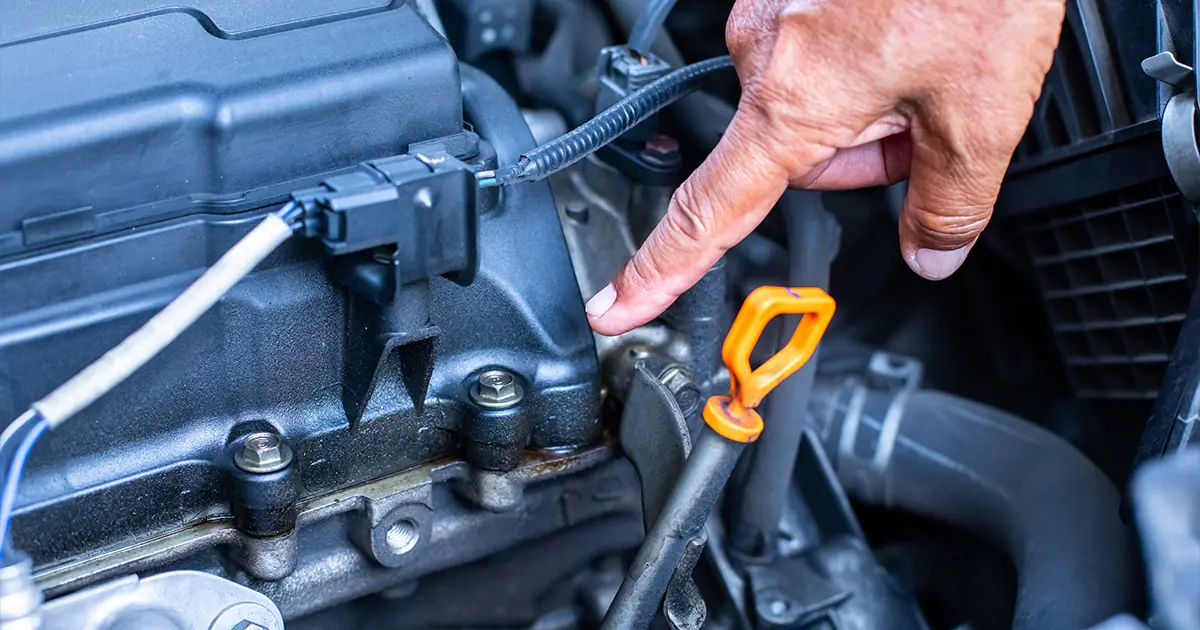Your car’s engine depends on oil to stay cool, clean, and smooth. But when oil starts leaking, it can quickly turn into a serious problem if left unchecked. A car engine oil leak usually happens due to worn-out seals, damaged gaskets, loose oil filters, or a cracked oil pan. You can prevent these leaks by checking your engine regularly, using good-quality oil, and fixing small issues early. Let’s go through the main causes and learn how to prevent them to keep your car running strong and leak-free.
Common Causes of Engine Oil Leaks
Oil leaks happen for different reasons, and most of them start from small parts wearing out over time. Below are the most common causes that lead to leaks and what you can do about them.
1. Worn-Out Gaskets
Gaskets seal the spaces between engine parts and keep oil from escaping. When they wear out due to age or heat, oil begins to leak from the gaps. Replacing old gaskets during routine maintenance helps prevent this common issue.
2. Damaged Oil Pan
The oil pan is located at the bottom of the engine and can get hit by rocks or debris from the road. A cracked or dented oil pan lets oil drip out slowly over time. Always check under your car after driving on rough roads to spot early damage.
3. Loose or Old Oil Filter
The oil filter keeps your engine oil clean, but if it becomes loose or too old, oil can start seeping around its edges. Installing a new filter during every oil change is a simple way to prevent leaks. Make sure it’s fitted tightly but not over-tightened.
4. Faulty Valve Cover Gasket
The valve cover gasket seals the top part of your engine. Over time, exposure to heat can make it crack or harden, allowing oil to leak from the top. If you notice oil on the engine surface, it may be time to replace this gasket.
5. Damaged Oil Drain Plug
The oil drain plug is located at the bottom of your oil pan and is removed during oil changes. If it’s not tightened correctly or its washer wears out, oil can leak from that spot. Always double-check that your mechanic secures it properly after each service.
6. Cracked Engine Block
Although rare, an engine block can crack due to overheating or impact. When this happens, oil can leak through the cracks and mix with coolant. This is a serious issue that needs professional repair right away to prevent engine failure.
7. Bad Oil Pressure Sensor
The oil pressure sensor helps monitor oil flow inside the engine. If this sensor becomes damaged, it may leak oil around its base. Replacing a faulty sensor is quick and affordable, but leaving it unchecked can cause bigger problems later.
Signs That Your Car Has an Oil Leak
You can often tell your car has an oil leak through visible and smell-based signs. Look for these common warning signals:
- Dark brown or yellowish spots under your vehicle after parking.
- Burning oil smell while driving or after turning off the engine.
- Smoke is coming from the engine area.
- The oil warning light is glowing on your dashboard.
- Rapidly dropping oil level when checking with the dipstick.
If you notice any of these signs, inspect your car immediately or visit a mechanic for car engine repair before the problem gets worse.
Prevention Tips to Stop Oil Leaks
Avoiding oil leaks is simple if you take regular care of your car. Preventive maintenance not only saves money but also keeps your engine running smoothly. Follow these detailed steps to stop oil leaks before they start:
1. Change Your Engine Oil Regularly
Old or dirty oil can damage seals and gaskets, leading to leaks. Always follow your car’s recommended oil change schedule and use the correct oil grade. Clean oil keeps your engine lubricated and reduces pressure that could cause leaks.
2. Inspect Seals and Gaskets Often
Seals and gaskets wear out naturally due to heat and engine vibration. During every oil change, ask your mechanic to inspect them for cracks, tears, or stiffness. Replacing them early is much cheaper than fixing a major oil leak later.
3. Tighten Parts Properly
Loose or over-tightened parts, like the oil filter or drain plug, can cause oil to leak. Make sure these parts are secure but not forced tight. Using the right tools and following the manufacturer’s torque settings helps prevent damage.
4. Drive Carefully
Hitting potholes, speed bumps, or rough terrain can damage your oil pan or underbody. Try to drive carefully on uneven roads and slow down when going over bumps. You can also install a skid plate for extra protection under your car.
5. Keep Your Engine Clean
A clean engine makes it easier to spot small leaks before they grow. Wipe off dirt, grease, and old oil stains during maintenance. A clean surface helps you detect leaks early and keeps your engine looking and running better.
6. Use High-Quality Engine Oil and Parts
Cheap or low-quality oil can break down faster under heat, increasing the chance of leaks. Always use engine oil that matches your car’s specifications and buy quality filters and gaskets. Investing in good materials extends the life of a car’s engine.
Conclusion
Oil leaks can cause serious trouble if not fixed quickly. By knowing the causes, spotting the signs early, and following easy prevention tips, you can protect your engine and extend your car’s life. Always use quality oil, get timely inspections, and repair worn-out parts right away. These simple steps help stop future car engine oil leaks and keep your car running smoothly.
Keep your engine strong and leak-free with professional care from Royal Prince Auto Care. Visit today for expert car engine inspection, oil change, and repair services you can trust.

